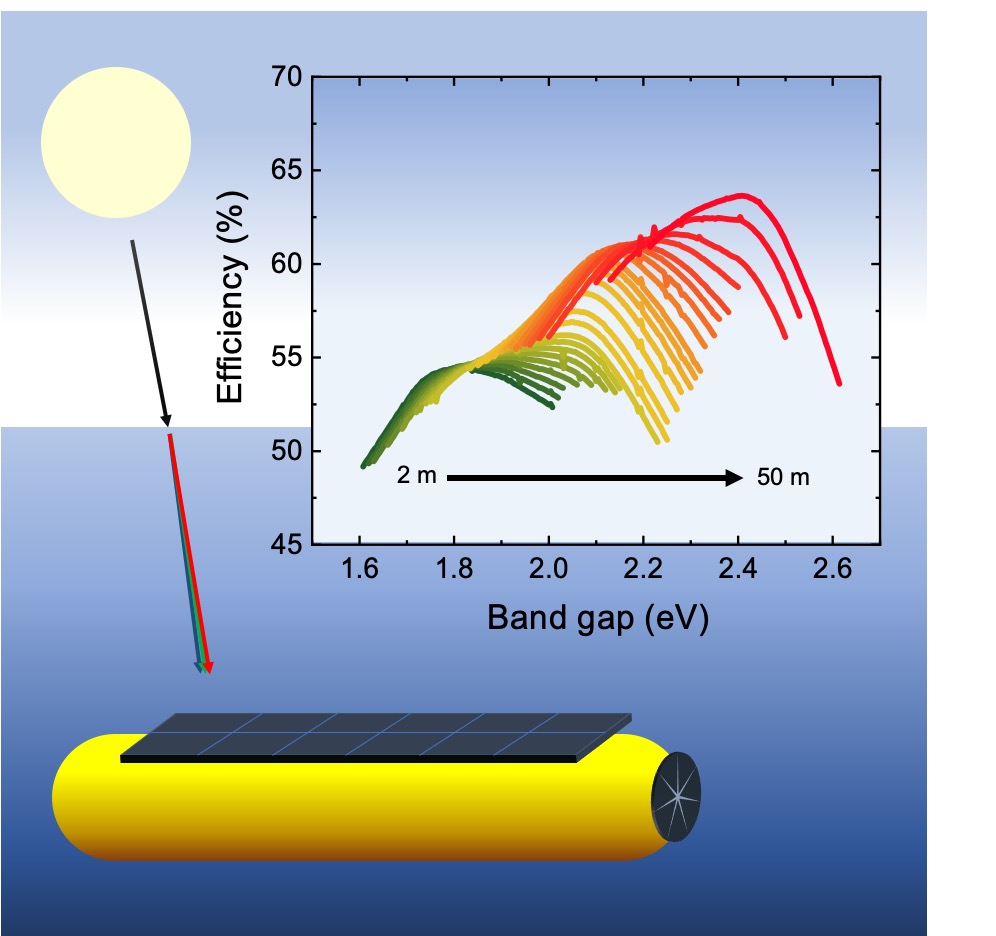(721b) Efficiency Limits of Underwater Solar Cells: An Excellent Application for Wide-Band-Gap Semiconductors?
AIChE Annual Meeting
2020
2020 Virtual AIChE Annual Meeting
Sustainable Engineering Forum
Sustainable Energy: Generation and Storage
Wednesday, November 18, 2020 - 8:15am to 8:30am
Operation of underwater vehicles and autonomous systems is currently limited by the lack of long-lasting power sources. These systems could potentially be powered using underwater solar cells,1–3 but the material requirements to achieve their full potential are not well-understood. Using detailed-balance calculations, we show that underwater solar cells can exhibit efficiencies from 55% in shallow waters to more than 65% in deep waters, while maintaining a power density > 5 mW cm-2.4 We show that the optimum band gap of the solar cell shifts by ~0.6 eV (1.8 to 2.4 eV) between shallow and deep waters and plateaus at 2.1 eV at intermediate depths, independent of geographical location. This wide range in optimum band-gap energies opens the potential for the vast library of wide-band gap semiconductors to be used for high-efficiency underwater solar cells.
- Jenkins, P.P., Messenger, S., Trautz, K.M., Maximenko, S.I., Goldstein, D., Scheiman, D., Hoheisel, R., and Walters, R.J. (2014). High-Bandgap Solar Cells for Underwater Photovoltaic Applications. IEEE J. Photovoltaics 4, 202–206.
- Walters, R.J., Yoon, W., Placencia, D., Scheiman, D., Lumb, M.P., Strang, A., Stavrinou, P.N., and Jenkins, P.P. (2015). Multijunction Organic Photovoltaic Cells for Underwater Solar Power. 2015 IEEE 42nd Photovolt. Spec. Conf. PVSC 2015, 1–3.
- Kong, J., Nordlund, D., Jin, J.S., Kim, S.Y., Jin, S.-M., Huang, D., Zheng, Y., Karpovich, C., Sertic, G., Wang, H., et al. (2019). Underwater Organic Solar Cells via Selective Removal of Electron Acceptors near the Top Electrode. ACS Energy Lett. 4, 1034–1041.
- Röhr, J.A., Lipton, J., Kong, J., Stephen, A., and Taylor, A.D. (2020). Efficiency Limits of Underwater Solar Cells. Joule 4, 1–10.

